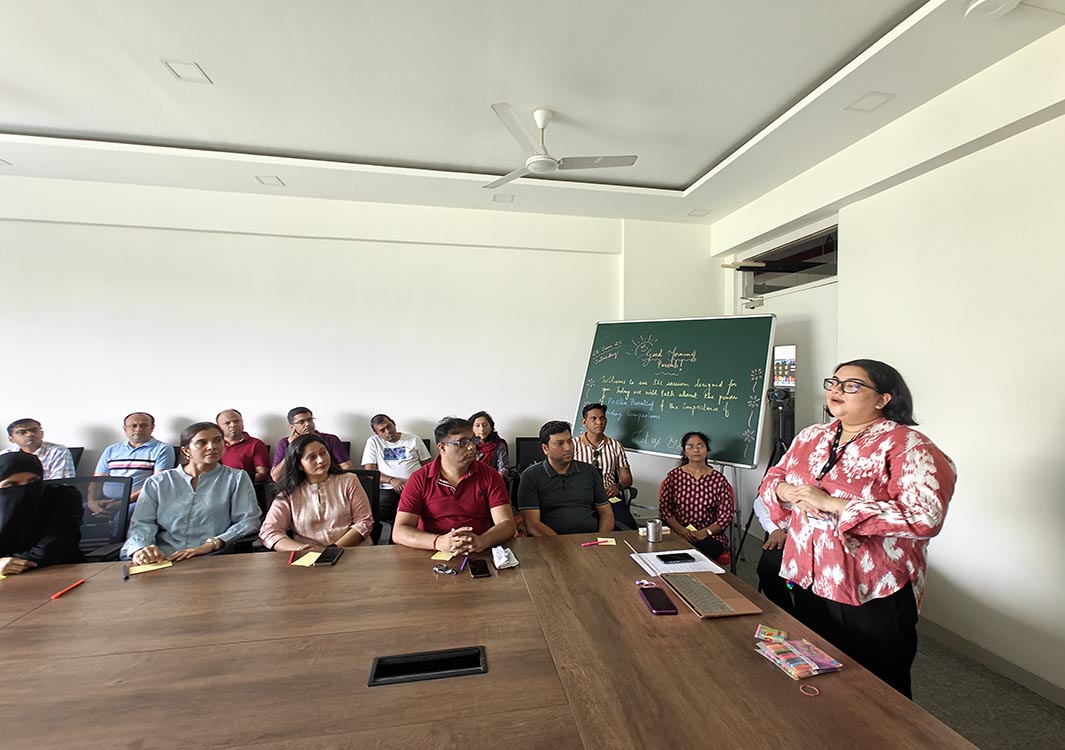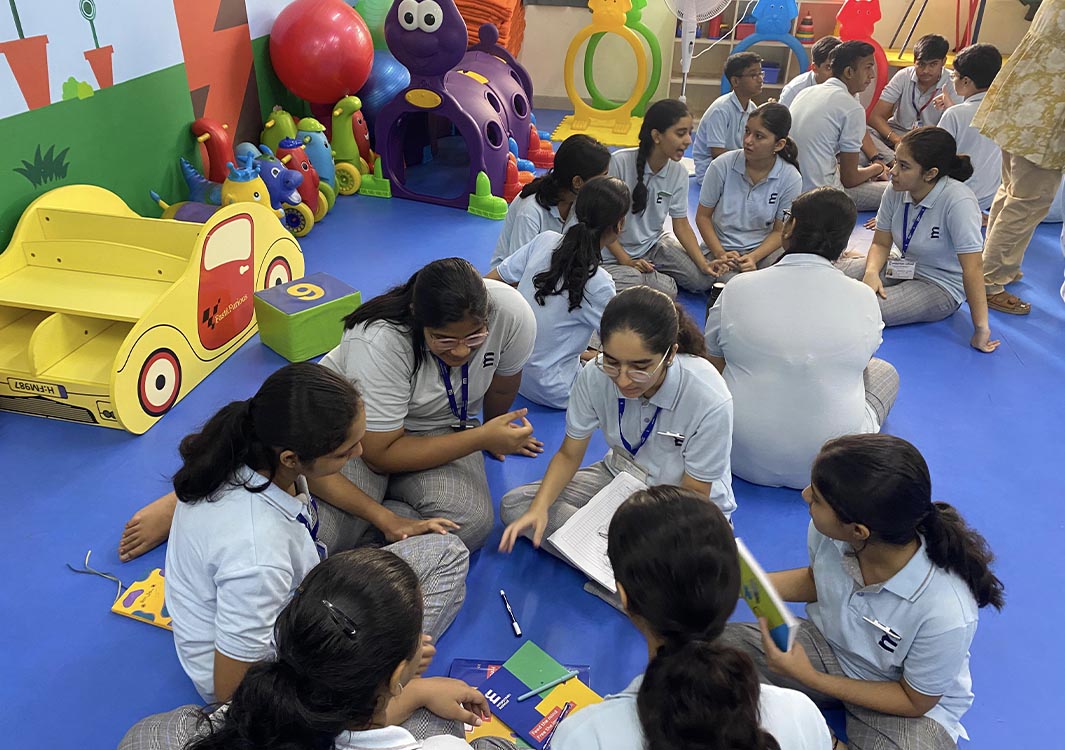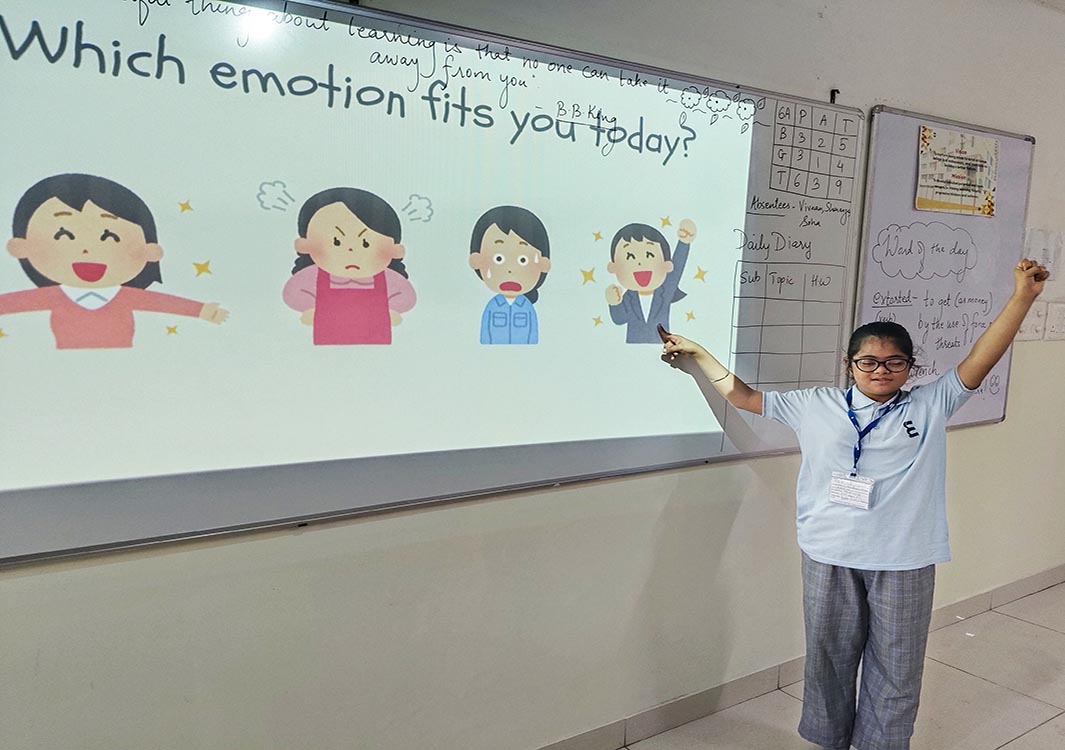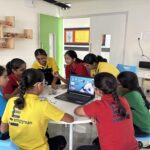Children today are growing up in a world that is fast-paced, demanding, and constantly changing. Many of them feel anxious, overwhelmed, or unsure of how to process what’s happening inside them. While academic learning is important, we know that books and exams alone are not enough. Children also need the right tools to manage their …
Children today are growing up in a world that is fast-paced, demanding, and constantly changing. Many of them feel anxious, overwhelmed, or unsure of how to process what’s happening inside them. While academic learning is important, we know that books and exams alone are not enough. Children also need the right tools to manage their emotions, build healthy relationships, and understand who they are. This is where Social and Emotional Learning (SEL) becomes essential. It’s not just as a subject, but as a foundation for everything else that follows.
At Empyrean, we have seen firsthand how powerful SEL can be. It helps children feel seen, supported, and more in control of their inner world. SEL gives them the skills to pause when emotions rise, to reflect on how they’re feeling, and to respond with awareness instead of reacting in frustration or fear. These are skills that stay with them far beyond the classroom.
What is SEL?
Social and Emotional Learning, or SEL, is the process through which children learn to understand and manage emotions, set goals, feel empathy, build relationships, and make thoughtful decisions. It isn’t a quick fix or a one-time workshop. It is a lifelong process that supports the emotional, social, and ethical development of every learner.
In today’s environment, SEL matters more than ever. Children face pressure from multiple directions—academics, social circles, digital spaces, and even their own expectations. Many of them don’t yet have the language to describe what they’re feeling, or the confidence to ask for help. SEL provides that language. It helps children recognise and name their emotions, understand what they’re experiencing, and know that it’s okay to feel a range of emotions.
It also creates a safe space. When students know they can share openly without judgment, they start to trust the process of learning.



Why SEL Matters
Every child is different. They each carry their own story, personality, and pace. Some come to school full of energy. Others may carry worries from home or find it difficult to make friends. SEL helps us meet them where they are. It allows educators to support the child, not just the student.
We believe that when children feel safe, heard, and valued, they naturally begin to thrive. This kind of growth cannot be measured only through marks or awards. It shows up in a way where your child comforts a peer, stays calm during a tough moment, or chooses to speak with kindness even when upset.
The future our children are growing into is full of uncertainty. Technology is changing fast, and new roles and challenges will continue to emerge. While we can’t fully prepare them for every situation, we can give them something that lasts—self-awareness, emotional intelligence, and the ability to connect with others. These qualities will always matter, no matter how the world changes.
How SEL is Practised at Empyrean
At Empyrean, SEL is not a separate subject that is taught once a week. It is part of how we teach, how we listen, and how we build our school culture. It is present in the structure of our day, in the way we talk to children, and in the spaces we create for them to be themselves.
We begin each morning with practices that help children pause and settle into their day. These might include deep breathing, mindful reflection, or quiet group activities that help students reconnect with themselves before the learning begins. These small moments set the tone. They help children feel more present, focused, and ready to engage.
In classrooms, teachers weave SEL into regular lessons through stories, group discussions, and activities that explore topics like friendship, respect, and empathy. We also use guided frameworks from our Eirene programme, which helps students develop emotional vocabulary, practise mindfulness, and build conflict resolution skills.
The goal is not to avoid emotions, but to understand them. Children are taught that it’s okay to feel sad, angry, or confused—and that these feelings can be worked through in healthy ways. Teachers model this in their own behaviour, showing children how to respond thoughtfully, how to repair misunderstandings, and how to show care even in challenging moments.
Building Emotional Awareness Across Ages
Our approach to SEL grows along with our students. In pre primary school, the focus is on identifying emotions and learning how to express them. Children are introduced to simple tools like feeling charts, group sharing time, and structured play that supports emotional development.
In primary school, we begin to explore how emotions affect actions, and how to recognise what others might be feeling too. Students learn how to name their emotions, take turns, solve small conflicts, and practise active listening.
As children move into middle and secondary school, SEL becomes more reflective. We discuss topics like identity, self-worth, peer pressure, and resilience. Students are encouraged to think about their values, recognise emotional patterns, and build a sense of purpose and self-leadership.
At every stage, SEL is adjusted to suit the developmental needs of the child. The approach is never rushed. It unfolds slowly, with care and consistency.
The Impact We See
Over time, we have seen remarkable shifts in how children respond to their environment. Students who once struggled with self-regulation now find it easier to calm themselves and focus. Children who were hesitant to speak up are now taking on leadership roles in class discussions. Even the way they interact with one another begins to change—with more respect, more patience, and more understanding.
These changes are not always dramatic, but they are deeply meaningful. They show us that emotional growth is possible when children are supported with the right tools and the right environment.
More than anything, we see that when children feel emotionally safe, they take bigger steps in their learning. They ask more questions. They take creative risks. They become more confident in who they are.
Looking Ahead
Social and Emotional Learning is not something that ends when the school day is over. It’s a way of being. And it continues at home, in friendships, and in the choices children make every day.
At Empyrean, we are committed to keeping SEL at the heart of our work. We know that emotional intelligence is not just a skill for school—it’s a foundation for life.
As we move forward, we will continue to explore new ways to bring SEL into daily routines, schoolwide programmes, and collaborative projects. Our aim is to keep building a culture where every child feels respected, supported, and empowered to be themselves.
We invite families to walk alongside us in this journey. Together, we can nurture a generation of learners who are not only smart, but also self-aware, kind, and strong.
What has been done so far to inculcate SEL
At Empyrean, we believe that Social and Emotional Learning works best when it is shared across the school community. For SEL to take root, it must be nurtured not just in students, but in the adults who guide and support them—both at school and at home.
For students, SEL is given dedicated time during the school day. At the start of each morning, students participate in structured sessions that encourage open conversations, reflective thinking, and group activities around emotions, relationships, and problem-solving. These are not separate from academic learning—they shape the tone for the rest of the day. Learners begin their mornings grounded, supported, and emotionally present. Recently, a focused SEL
workshop was also conducted to deepen students’ understanding of empathy, resilience, and personal awareness. These sessions gave students space to explore their own feelings, listen to others, and build new tools for navigating challenges with confidence.
For teachers, SEL begins even before the school year starts. Our educators go through training at the start of each academic session to build their own emotional readiness and awareness. These workshops are designed to help teachers understand the principles of SEL, practise key strategies, and learn how to bring these ideas into everyday classroom interactions. A recent SEL Educator Workshop helped deepen this work further—offering new insights,
sharing case studies, and reinforcing the idea that a teacher’s emotional presence is just as important as the curriculum they teach. When teachers model calm, care, and connection, students naturally follow.
For parents, SEL is supported through open communication and meaningful engagement. We understand that emotional learning continues long after the school day ends. That’s why we recently conducted a dedicated SEL workshop for parents as well. The session offered tools and strategies to support emotional development at home. Whether it’s helping children name their feelings, navigate disappointment, or build empathy in everyday situations. The workshop also created space for parents to reflect, ask questions, and
feel part of their child’s emotional journey.






